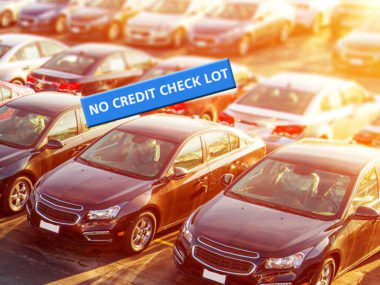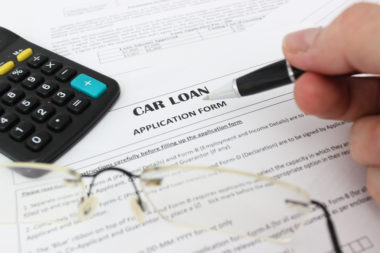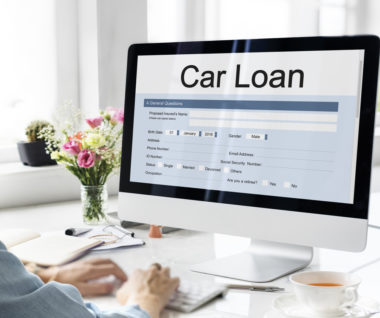When you borrow money to purchase a vehicle, the lender typically charges interest for that privilege. Although you might be able to score a car loan with 0% interest for a certain period of time, most lenders do tack on interest charges at rates that can vary wildly based on where you purchase the car from, the type of car your buy, the lender, your credit score, and the length of the loan.
Knowing where you stand before you begin shopping for a car and what to expect in terms of average rates can put you in a better position to negotiate the loan and potentially save money.
Table of Contents
Average Auto Loan Rates by Credit Score
Generally speaking, the higher your credit score, the lower the interest rate on a vehicle loan. Lenders use your credit score for insight into your creditworthiness, or more specifically, as a means to predict how likely you are to default on the loan. The lower the score, the bigger the risk, so if your score is on the low end, the lender will charge more interest to help offset any potential losses if you don’t repay the loan. On the other hand, a higher credit score indicates a lower risk, so the lender doesn’t need to charge as much interest. Ultimately, the difference in interest rates can amount to thousand of dollars over the life of the loan.
According to Experian, the average interest rate on a new car loan is 6.16% for a 68- month term. For a used car, that rate jumps to 10.06% for a 64-month term. Breaking the loan rates down by credit score, it’s easy to see that a high credit score equals a lower interest rate: for the highest scores of 750 or above, the average interest rate is 4.96%.
For other credit scores, the average rates get progressively higher, as follows:
- 700 to 749: 5.01%;
- 650 to 699: 11.93%;
- 450 to 649: 18.21 %;
- 449 or less: 23.81%;
Keep in mind that some vehicle manufacturers may periodically offer 0% financing on new vehicle purchases. Usually, these offers are restricted to “well-qualified buyers,” meaning those with the highest credit scores.
Other criteria may also play into determining who is a “well-qualified buyer,” including whether you have purchased that brand before, the price of the car you want, trade-in value, and down payment amount. If you do qualify for no interest, it can save a great deal of money over the life of the loan.
Average Auto Loan Rates by Term Length
Your credit score isn’t the only factor that influences your auto loan interest rate. The length of the loan term also influences the interest rate. In general, the shorter the loan term, the lower the interest rate. The longer the term, the higher the rate — and the more you’ll pay over the life of the loan.
Therefore, when purchasing a car it’s a good idea to compare the interest rates for different loan terms, and how much you will pay over time. In some cases, a shorter loan term might mean higher monthly payments, but less interest paid over the life of the loan.
Shorter loan terms are also common when you refinance a car loan. When you purchase your vehicle at a high interest rate, you may be able to refinance for more favorable terms with a different lender, effectively lowering your monthly payments or reducing the overall cost of the vehicle.
Average Auto Loan Rates by Lender
Who you borrow money from can also influence the interest rate on the loan. Before shopping for a car, research rates and loan products from your bank or credit union, independent lenders, and the dealership. Rate shopping, or inquiring about loans from multiple lenders within a short period, will not significantly affect your credit score, and shopping with a loan already approved can save you time and money.
When shopping for a loan, check with:
- Banks and credit unions: A local bank or credit union may be able to offer lower rates on car loans, especially if you are an existing customer. You may need to meet certain conditions, such as agreeing to automatic withdrawal of loan payments, but the terms are likely to be more favorable. If you have fair or poor credit, a bank may also be willing to lend you money, albeit at a higher rate, than the dealership.
- Dealership: Financing a vehicle from a dealership typically means taking out a loan from the manufacturer. Makers like Ford, GM, and Honda offer financing programs, but they are typically only available to customers with good or excellent credit. The 0% financing offers you see advertised are typically offered by automakers to give customers an incentive to buy, but again, only the most qualified customers typically get this rate.
- Buy here, pay here: Some car dealerships — almost always used car dealers — offer “buy here, pay here” financing on vehicle purchases. This means the owner of the car lot directly finances the car purchase, often for a small down payment. These lots often cater to people with spotty credit histories, and you can expect an interest rate in the double digits, often above 20%.
The terms of these loans may also be stricter than a traditional loan; for example, you may be required to make weekly or biweekly payments, and pay in person. If you cannot finance a vehicle through any other avenue, though, a buy here, pay here arrangement might be the best way to get a car and begin reestablishing your credit.
Average Loan Rates for New vs. Used Cars
Again, the average interest rate on a new car loan is 6.16% for a 68-month term; for a used car, it’s 10.06% for a 64-month term. Even when you don’t purchase a used vehicle at a “buy here, pay here” lot, the interest rate on the car loan will likely be higher than that of a new car. Used cars often represent a bigger risk for lenders.
In some cases, a used car buyer will have a lower credit score than someone buying new. And because used cars are typically worth less than new cars, even when they are in good shape, lenders charge higher rates to recoup any losses in case the buyer defaults on the loan and the car is either too old or in too poor of a condition to resell. Finally, some dealerships use low interest rates on new cars as an enticement to get customers to spend more on a new vehicle rather than a used one.
Image Source: https://depositphotos.com/





